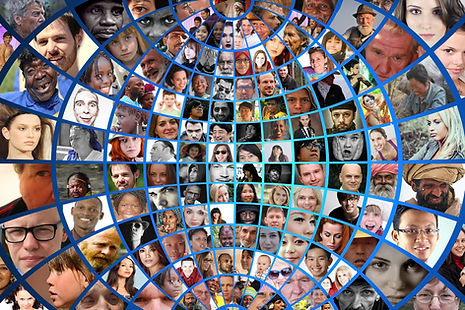community events.

Addressing the Collective Trauma in our Offices
Responding to the violence, hate and fear in the world and looking for healing that leads to a world of deeper connections.
THIS SERIES
HAS BEEN CANCELLED
A 3-Part Series of Community Gatherings
August 23, 2016
September 27, 2016 - CANCELLED
October 25, 2016 - CANCELLED
The best way to respond to collective trauma is in a collective. There are no experts for us to follow. None of us knows exactly how to respond to the changing world around us right now. Each of us has to find our way, with our clients and ourselves, but hopefully we can go forward together, learning from and supporting each other. This collective response also activates the social engagement neuropathways in our nervous systems, buffering us from activating the fight/flight response or the detachment/hopelessness response that often accompanies collective trauma.
Sociologist Kai Erikson’s definition of collective trauma is a blow or tearing “to the basic tissues of social life that damages the bonds attaching people together and impairs the prevailing sense of community." Collective trauma is affecting all of us, but often in different ways. Many of us are feeling our usually secure sense of community tearing slowly apart. From global terrorism to the upcoming elections, to mass shootings, to the video’s and live streaming of black men being killed by police, and to police being ambushed and killed.
Others of us are responding with “welcome to my world.” Groups of people in our society have never felt a secure attachment to the larger community around them and have experienced an ongoing tearing of the attachments they try and form as they seek a safe and secure world. And yet others of us are saying “bring it on” and let the whole thing tear apart, in the hope that maybe a new and safe and welcoming society can be built because there never has been one for them.
So what do we do at this incredibly uncomfortable time in our culture with so much upheaval and uncertainly. What can we learn from our own struggles as a citizen, from our own personal response to this collective trauma and its fears, angers and uncertainties in our own lives? Then can we and should we engage our clients directly or indirectly around the issues of collective trauma and its impact in their lives?
And how can we, as a community of mental health professionals, as diverse as the world we live in, come together and support and learn from each other how to navigate the waters of this collective trauma so we can be part of reshaping the world and not just adapting to it. Can we, regardless of the level of our awareness or comfort and discomfort around these issues, engage with our colleagues to, at least for an evening, form a collective response to the collective trauma?
Learning from the feedback from our last session, there will be some time spent in the large group framing the issues and then there will be two periods of breaking into small groups. We will decide what these groups are that evening, but drawing on feedback from previous evenings, the emphasis will be placed on fostering a creating safe spaces within which sharing can occur. We will convene back into a large group at the end of the evening to talk about where to go from here.
-------------------------------------------
For those who have not attended one of these events before and are new to this discussion there are 3 attachments that we will post that you can read to help you get up to speed on the discussion. You are invited to read the blog that was posted last month framing the issue of collective trauma for these evenings and two sample letters/handouts to clients to begin to give you an idea of possible language you can use with your clients or a jumping off point to find your own language to use with the population. Some small group discussion will be focused on engaging with clients.
There is no cost for the evening but a $5 donation would be appreciated.







